Arden University BUS003: Developing Academic Skills Portfolio Tasks
VerifiedAdded on 2023/06/15
|14
|2864
|500
Portfolio
AI Summary
This assignment is a portfolio of tasks focused on developing essential academic skills. It covers time management, with a detailed timetable and reflection using Gibbs' model. The portfolio also explores resource utilization, evaluating various learning tools. Furthermore, it addresses academic integrity, plagiarism, and referencing, including notes on honesty, respect, fairness, and responsibility. The document provides insights into literature searching, note-taking, and evaluation, highlighting the importance of proper citation and avoiding plagiarism. It serves as a practical guide for students aiming to enhance their academic performance and maintain ethical standards.
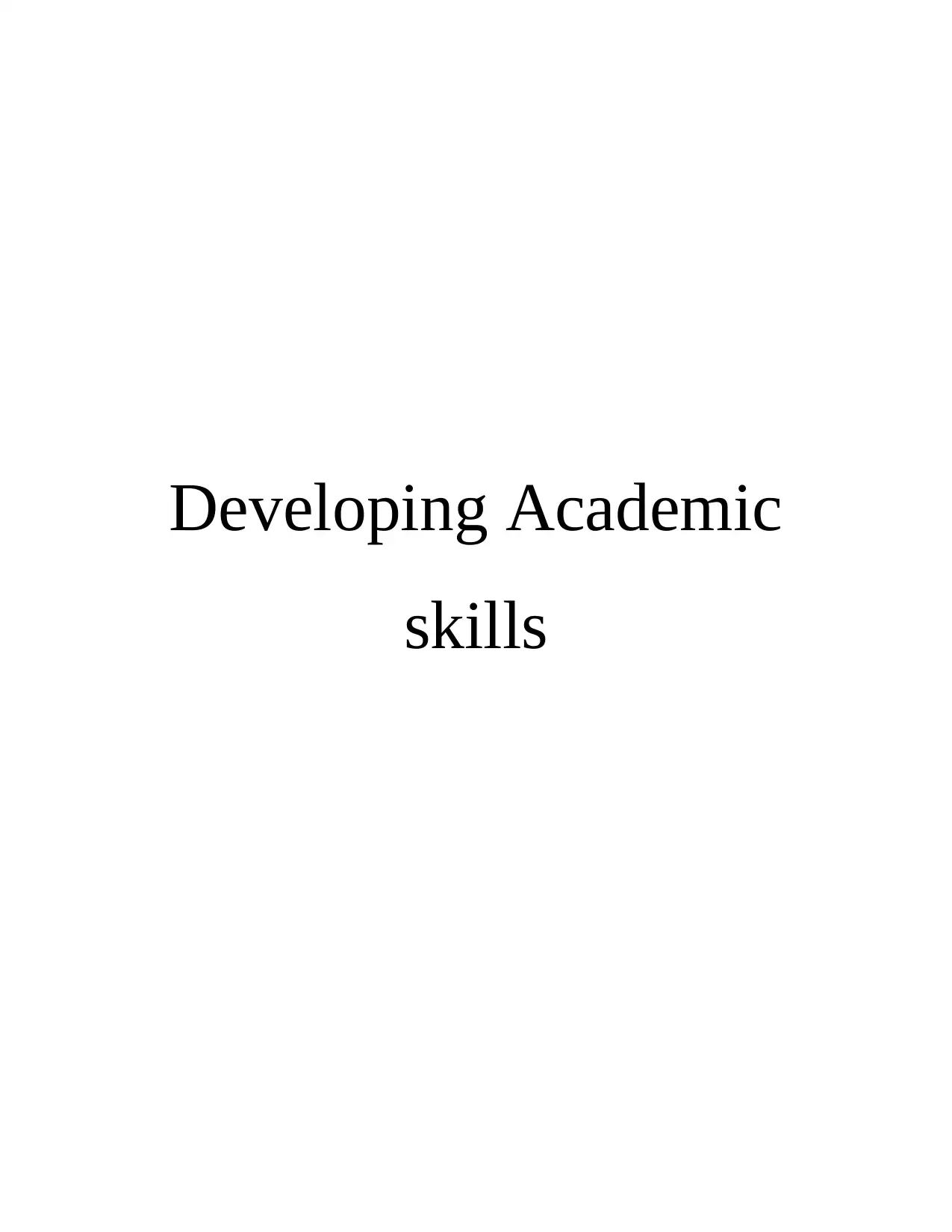
Developing Academic
skills
skills
Paraphrase This Document
Need a fresh take? Get an instant paraphrase of this document with our AI Paraphraser
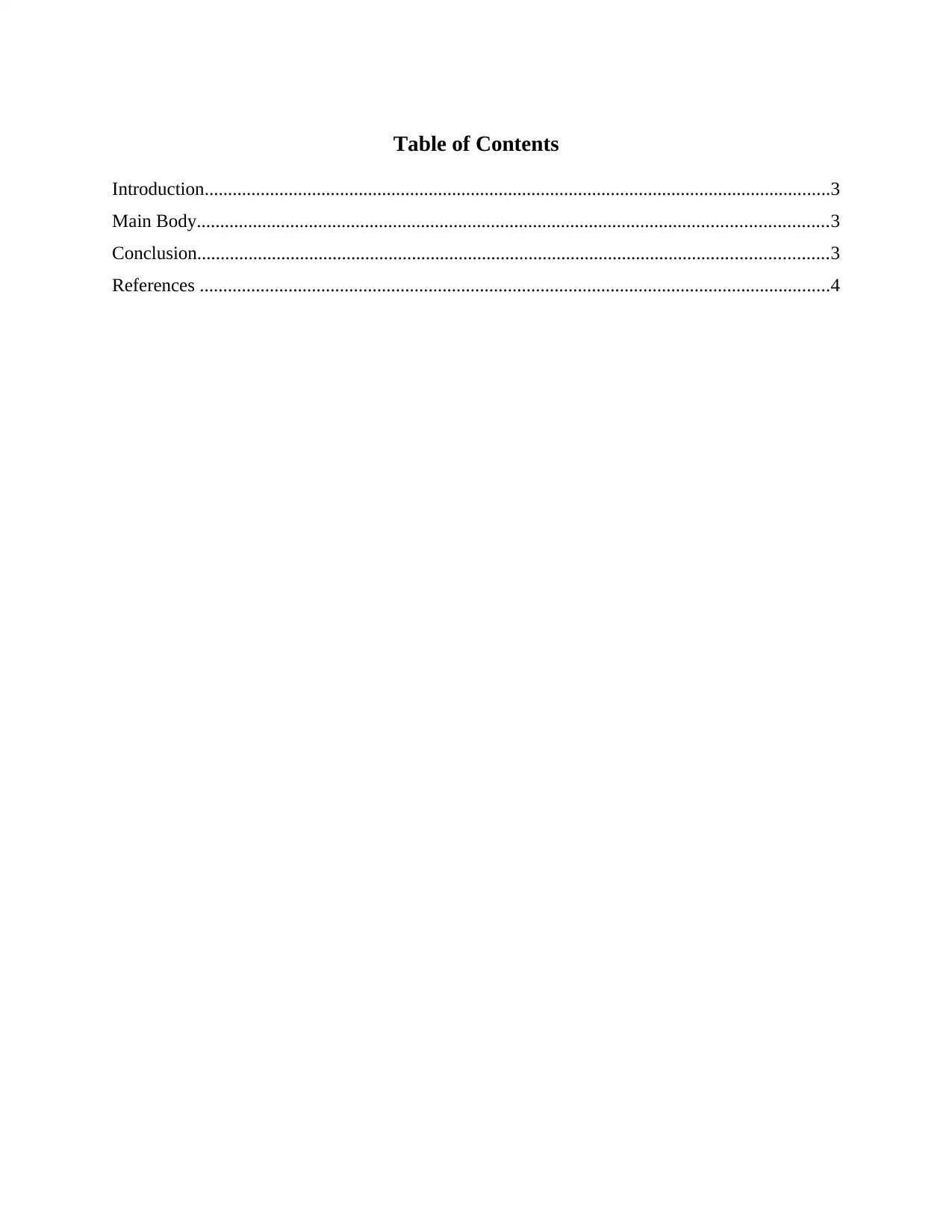
Table of Contents
Introduction......................................................................................................................................3
Main Body.......................................................................................................................................3
Conclusion.......................................................................................................................................3
References .......................................................................................................................................4
Introduction......................................................................................................................................3
Main Body.......................................................................................................................................3
Conclusion.......................................................................................................................................3
References .......................................................................................................................................4
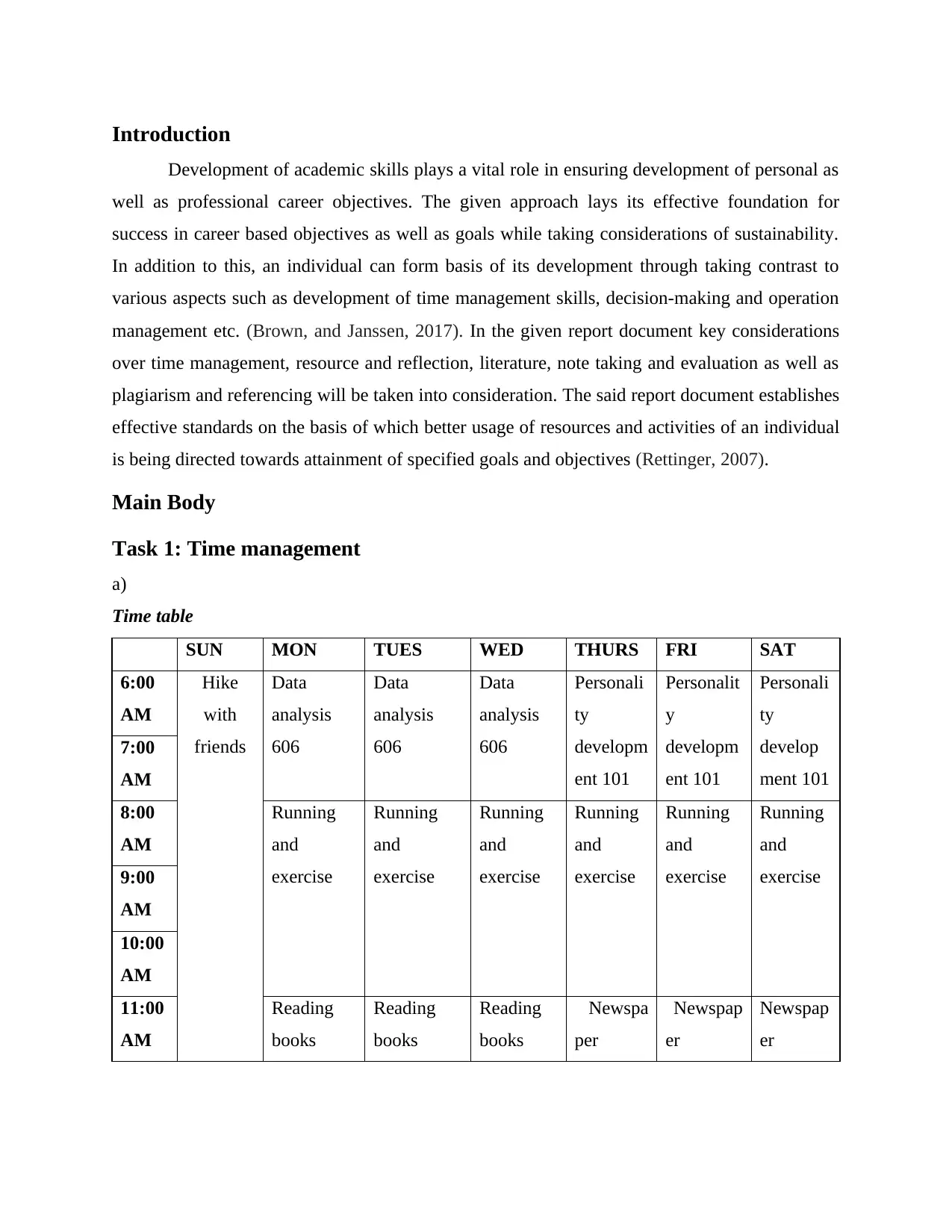
Introduction
Development of academic skills plays a vital role in ensuring development of personal as
well as professional career objectives. The given approach lays its effective foundation for
success in career based objectives as well as goals while taking considerations of sustainability.
In addition to this, an individual can form basis of its development through taking contrast to
various aspects such as development of time management skills, decision-making and operation
management etc. (Brown, and Janssen, 2017). In the given report document key considerations
over time management, resource and reflection, literature, note taking and evaluation as well as
plagiarism and referencing will be taken into consideration. The said report document establishes
effective standards on the basis of which better usage of resources and activities of an individual
is being directed towards attainment of specified goals and objectives (Rettinger, 2007).
Main Body
Task 1: Time management
a)
Time table
SUN MON TUES WED THURS FRI SAT
6:00
AM
Hike
with
friends
Data
analysis
606
Data
analysis
606
Data
analysis
606
Personali
ty
developm
ent 101
Personalit
y
developm
ent 101
Personali
ty
develop
ment 101
7:00
AM
8:00
AM
Running
and
exercise
Running
and
exercise
Running
and
exercise
Running
and
exercise
Running
and
exercise
Running
and
exercise9:00
AM
10:00
AM
11:00
AM
Reading
books
Reading
books
Reading
books
Newspa
per
Newspap
er
Newspap
er
Development of academic skills plays a vital role in ensuring development of personal as
well as professional career objectives. The given approach lays its effective foundation for
success in career based objectives as well as goals while taking considerations of sustainability.
In addition to this, an individual can form basis of its development through taking contrast to
various aspects such as development of time management skills, decision-making and operation
management etc. (Brown, and Janssen, 2017). In the given report document key considerations
over time management, resource and reflection, literature, note taking and evaluation as well as
plagiarism and referencing will be taken into consideration. The said report document establishes
effective standards on the basis of which better usage of resources and activities of an individual
is being directed towards attainment of specified goals and objectives (Rettinger, 2007).
Main Body
Task 1: Time management
a)
Time table
SUN MON TUES WED THURS FRI SAT
6:00
AM
Hike
with
friends
Data
analysis
606
Data
analysis
606
Data
analysis
606
Personali
ty
developm
ent 101
Personalit
y
developm
ent 101
Personali
ty
develop
ment 101
7:00
AM
8:00
AM
Running
and
exercise
Running
and
exercise
Running
and
exercise
Running
and
exercise
Running
and
exercise
Running
and
exercise9:00
AM
10:00
AM
11:00
AM
Reading
books
Reading
books
Reading
books
Newspa
per
Newspap
er
Newspap
er
⊘ This is a preview!⊘
Do you want full access?
Subscribe today to unlock all pages.

Trusted by 1+ million students worldwide
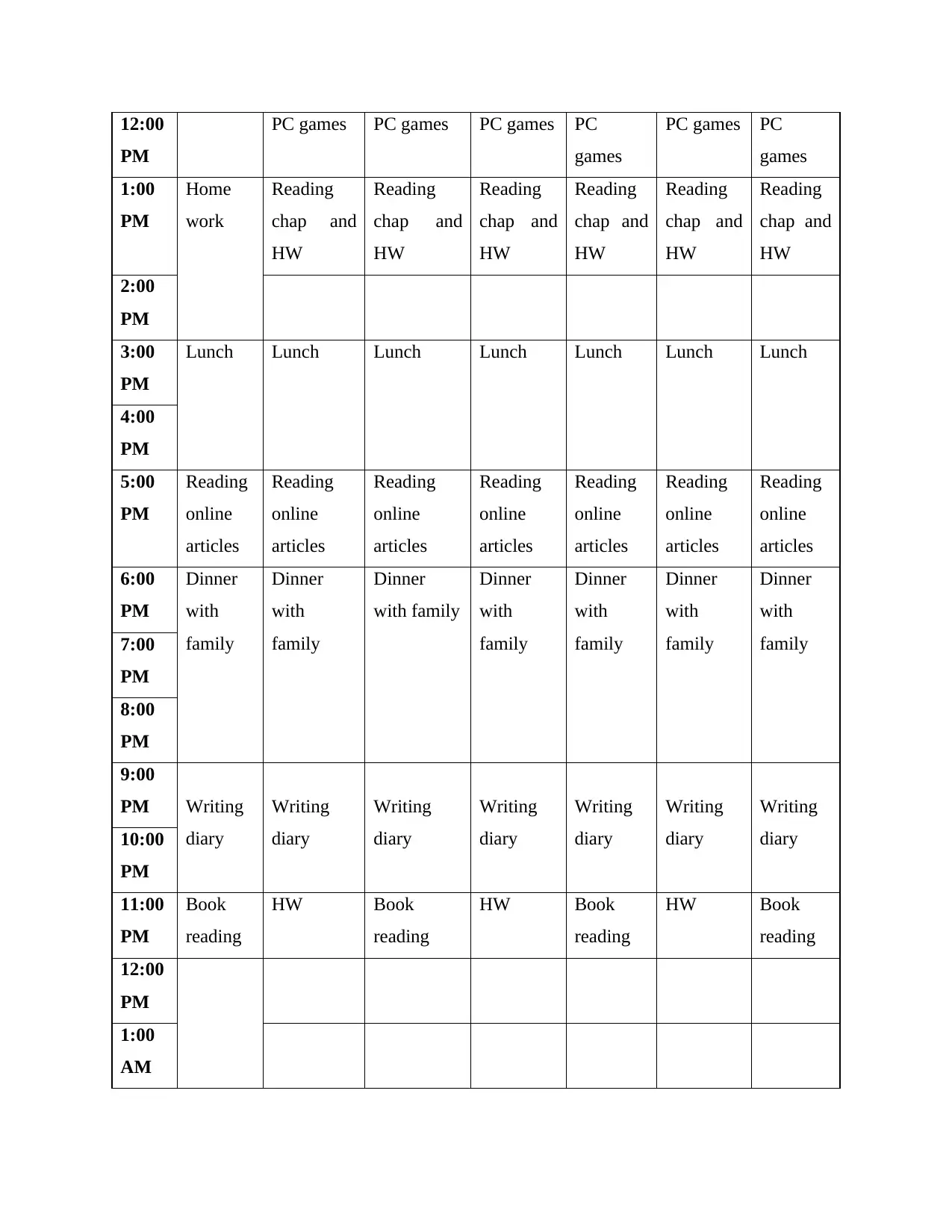
12:00
PM
PC games PC games PC games PC
games
PC games PC
games
1:00
PM
Home
work
Reading
chap and
HW
Reading
chap and
HW
Reading
chap and
HW
Reading
chap and
HW
Reading
chap and
HW
Reading
chap and
HW
2:00
PM
3:00
PM
Lunch Lunch Lunch Lunch Lunch Lunch Lunch
4:00
PM
5:00
PM
Reading
online
articles
Reading
online
articles
Reading
online
articles
Reading
online
articles
Reading
online
articles
Reading
online
articles
Reading
online
articles
6:00
PM
Dinner
with
family
Dinner
with
family
Dinner
with family
Dinner
with
family
Dinner
with
family
Dinner
with
family
Dinner
with
family7:00
PM
8:00
PM
9:00
PM Writing
diary
Writing
diary
Writing
diary
Writing
diary
Writing
diary
Writing
diary
Writing
diary10:00
PM
11:00
PM
Book
reading
HW Book
reading
HW Book
reading
HW Book
reading
12:00
PM
1:00
AM
PM
PC games PC games PC games PC
games
PC games PC
games
1:00
PM
Home
work
Reading
chap and
HW
Reading
chap and
HW
Reading
chap and
HW
Reading
chap and
HW
Reading
chap and
HW
Reading
chap and
HW
2:00
PM
3:00
PM
Lunch Lunch Lunch Lunch Lunch Lunch Lunch
4:00
PM
5:00
PM
Reading
online
articles
Reading
online
articles
Reading
online
articles
Reading
online
articles
Reading
online
articles
Reading
online
articles
Reading
online
articles
6:00
PM
Dinner
with
family
Dinner
with
family
Dinner
with family
Dinner
with
family
Dinner
with
family
Dinner
with
family
Dinner
with
family7:00
PM
8:00
PM
9:00
PM Writing
diary
Writing
diary
Writing
diary
Writing
diary
Writing
diary
Writing
diary
Writing
diary10:00
PM
11:00
PM
Book
reading
HW Book
reading
HW Book
reading
HW Book
reading
12:00
PM
1:00
AM
Paraphrase This Document
Need a fresh take? Get an instant paraphrase of this document with our AI Paraphraser
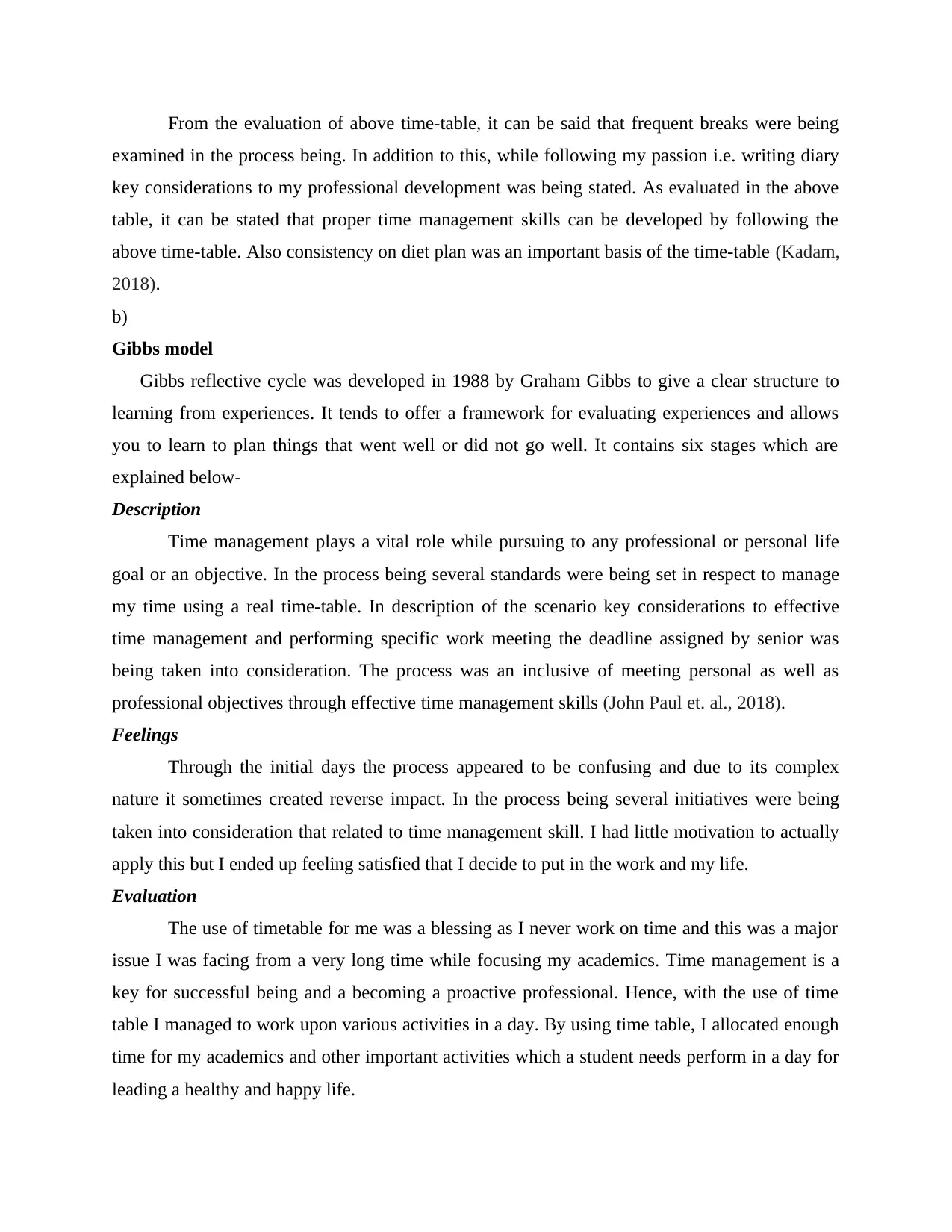
From the evaluation of above time-table, it can be said that frequent breaks were being
examined in the process being. In addition to this, while following my passion i.e. writing diary
key considerations to my professional development was being stated. As evaluated in the above
table, it can be stated that proper time management skills can be developed by following the
above time-table. Also consistency on diet plan was an important basis of the time-table (Kadam,
2018).
b)
Gibbs model
Gibbs reflective cycle was developed in 1988 by Graham Gibbs to give a clear structure to
learning from experiences. It tends to offer a framework for evaluating experiences and allows
you to learn to plan things that went well or did not go well. It contains six stages which are
explained below-
Description
Time management plays a vital role while pursuing to any professional or personal life
goal or an objective. In the process being several standards were being set in respect to manage
my time using a real time-table. In description of the scenario key considerations to effective
time management and performing specific work meeting the deadline assigned by senior was
being taken into consideration. The process was an inclusive of meeting personal as well as
professional objectives through effective time management skills (John Paul et. al., 2018).
Feelings
Through the initial days the process appeared to be confusing and due to its complex
nature it sometimes created reverse impact. In the process being several initiatives were being
taken into consideration that related to time management skill. I had little motivation to actually
apply this but I ended up feeling satisfied that I decide to put in the work and my life.
Evaluation
The use of timetable for me was a blessing as I never work on time and this was a major
issue I was facing from a very long time while focusing my academics. Time management is a
key for successful being and a becoming a proactive professional. Hence, with the use of time
table I managed to work upon various activities in a day. By using time table, I allocated enough
time for my academics and other important activities which a student needs perform in a day for
leading a healthy and happy life.
examined in the process being. In addition to this, while following my passion i.e. writing diary
key considerations to my professional development was being stated. As evaluated in the above
table, it can be stated that proper time management skills can be developed by following the
above time-table. Also consistency on diet plan was an important basis of the time-table (Kadam,
2018).
b)
Gibbs model
Gibbs reflective cycle was developed in 1988 by Graham Gibbs to give a clear structure to
learning from experiences. It tends to offer a framework for evaluating experiences and allows
you to learn to plan things that went well or did not go well. It contains six stages which are
explained below-
Description
Time management plays a vital role while pursuing to any professional or personal life
goal or an objective. In the process being several standards were being set in respect to manage
my time using a real time-table. In description of the scenario key considerations to effective
time management and performing specific work meeting the deadline assigned by senior was
being taken into consideration. The process was an inclusive of meeting personal as well as
professional objectives through effective time management skills (John Paul et. al., 2018).
Feelings
Through the initial days the process appeared to be confusing and due to its complex
nature it sometimes created reverse impact. In the process being several initiatives were being
taken into consideration that related to time management skill. I had little motivation to actually
apply this but I ended up feeling satisfied that I decide to put in the work and my life.
Evaluation
The use of timetable for me was a blessing as I never work on time and this was a major
issue I was facing from a very long time while focusing my academics. Time management is a
key for successful being and a becoming a proactive professional. Hence, with the use of time
table I managed to work upon various activities in a day. By using time table, I allocated enough
time for my academics and other important activities which a student needs perform in a day for
leading a healthy and happy life.
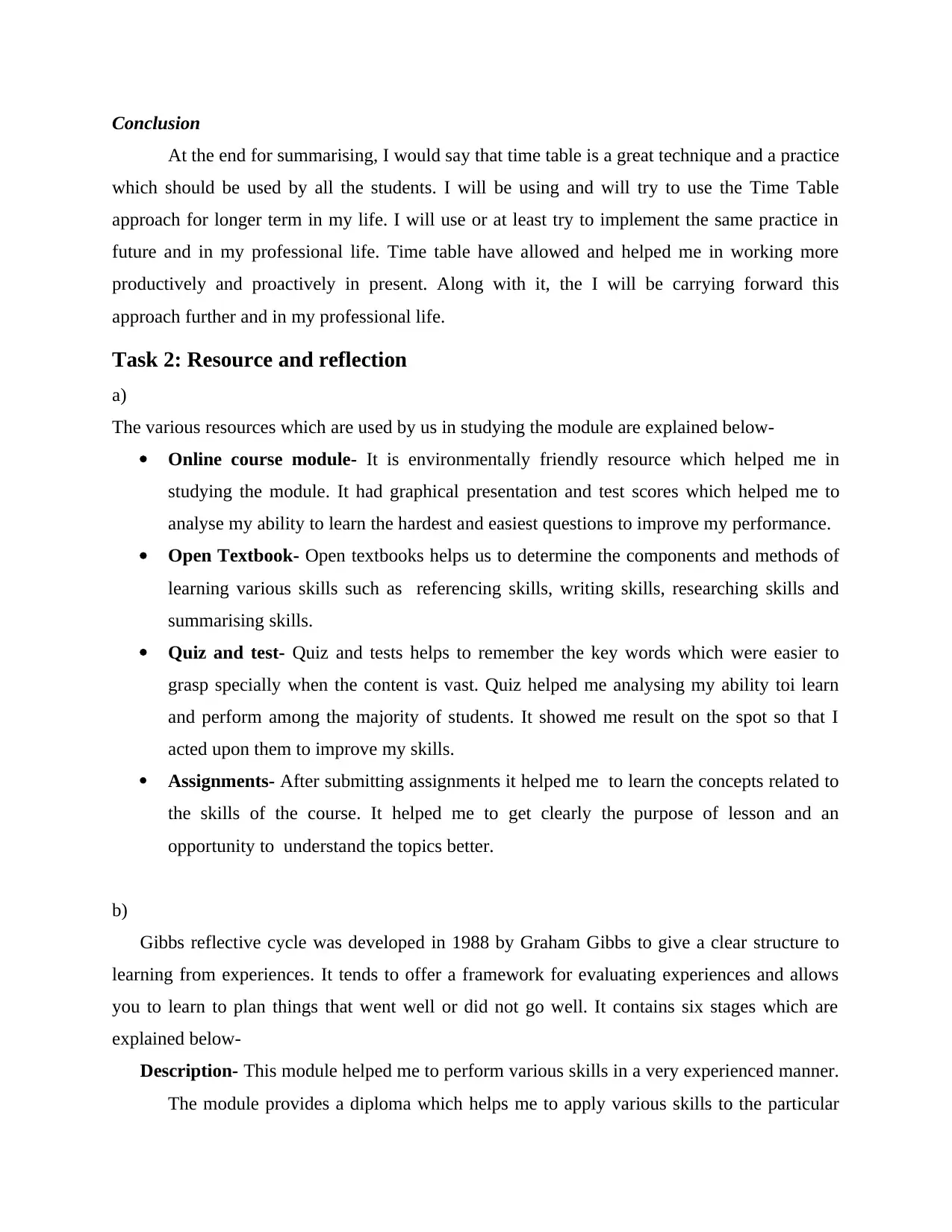
Conclusion
At the end for summarising, I would say that time table is a great technique and a practice
which should be used by all the students. I will be using and will try to use the Time Table
approach for longer term in my life. I will use or at least try to implement the same practice in
future and in my professional life. Time table have allowed and helped me in working more
productively and proactively in present. Along with it, the I will be carrying forward this
approach further and in my professional life.
Task 2: Resource and reflection
a)
The various resources which are used by us in studying the module are explained below-
Online course module- It is environmentally friendly resource which helped me in
studying the module. It had graphical presentation and test scores which helped me to
analyse my ability to learn the hardest and easiest questions to improve my performance.
Open Textbook- Open textbooks helps us to determine the components and methods of
learning various skills such as referencing skills, writing skills, researching skills and
summarising skills.
Quiz and test- Quiz and tests helps to remember the key words which were easier to
grasp specially when the content is vast. Quiz helped me analysing my ability toi learn
and perform among the majority of students. It showed me result on the spot so that I
acted upon them to improve my skills.
Assignments- After submitting assignments it helped me to learn the concepts related to
the skills of the course. It helped me to get clearly the purpose of lesson and an
opportunity to understand the topics better.
b)
Gibbs reflective cycle was developed in 1988 by Graham Gibbs to give a clear structure to
learning from experiences. It tends to offer a framework for evaluating experiences and allows
you to learn to plan things that went well or did not go well. It contains six stages which are
explained below-
Description- This module helped me to perform various skills in a very experienced manner.
The module provides a diploma which helps me to apply various skills to the particular
At the end for summarising, I would say that time table is a great technique and a practice
which should be used by all the students. I will be using and will try to use the Time Table
approach for longer term in my life. I will use or at least try to implement the same practice in
future and in my professional life. Time table have allowed and helped me in working more
productively and proactively in present. Along with it, the I will be carrying forward this
approach further and in my professional life.
Task 2: Resource and reflection
a)
The various resources which are used by us in studying the module are explained below-
Online course module- It is environmentally friendly resource which helped me in
studying the module. It had graphical presentation and test scores which helped me to
analyse my ability to learn the hardest and easiest questions to improve my performance.
Open Textbook- Open textbooks helps us to determine the components and methods of
learning various skills such as referencing skills, writing skills, researching skills and
summarising skills.
Quiz and test- Quiz and tests helps to remember the key words which were easier to
grasp specially when the content is vast. Quiz helped me analysing my ability toi learn
and perform among the majority of students. It showed me result on the spot so that I
acted upon them to improve my skills.
Assignments- After submitting assignments it helped me to learn the concepts related to
the skills of the course. It helped me to get clearly the purpose of lesson and an
opportunity to understand the topics better.
b)
Gibbs reflective cycle was developed in 1988 by Graham Gibbs to give a clear structure to
learning from experiences. It tends to offer a framework for evaluating experiences and allows
you to learn to plan things that went well or did not go well. It contains six stages which are
explained below-
Description- This module helped me to perform various skills in a very experienced manner.
The module provides a diploma which helps me to apply various skills to the particular
⊘ This is a preview!⊘
Do you want full access?
Subscribe today to unlock all pages.

Trusted by 1+ million students worldwide
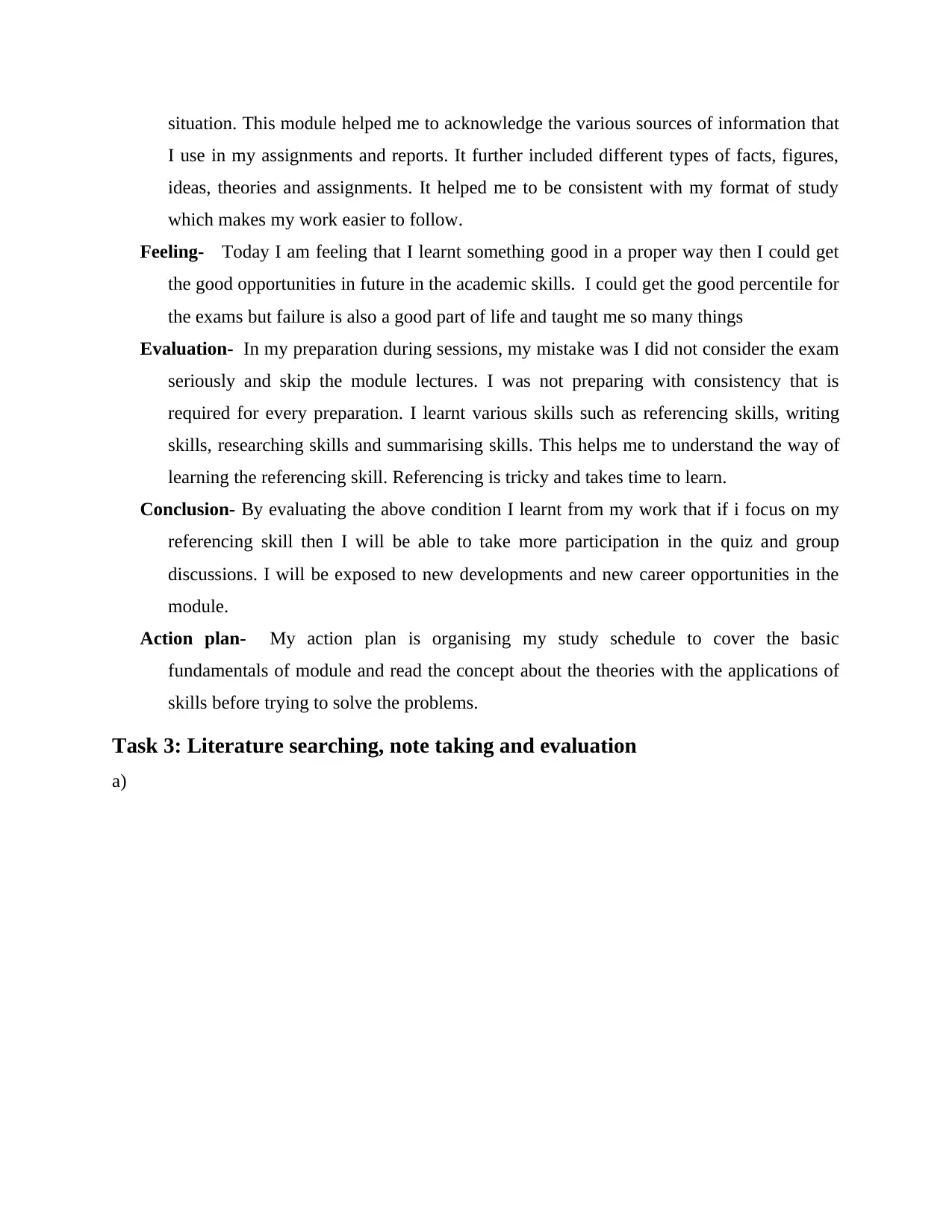
situation. This module helped me to acknowledge the various sources of information that
I use in my assignments and reports. It further included different types of facts, figures,
ideas, theories and assignments. It helped me to be consistent with my format of study
which makes my work easier to follow.
Feeling- Today I am feeling that I learnt something good in a proper way then I could get
the good opportunities in future in the academic skills. I could get the good percentile for
the exams but failure is also a good part of life and taught me so many things
Evaluation- In my preparation during sessions, my mistake was I did not consider the exam
seriously and skip the module lectures. I was not preparing with consistency that is
required for every preparation. I learnt various skills such as referencing skills, writing
skills, researching skills and summarising skills. This helps me to understand the way of
learning the referencing skill. Referencing is tricky and takes time to learn.
Conclusion- By evaluating the above condition I learnt from my work that if i focus on my
referencing skill then I will be able to take more participation in the quiz and group
discussions. I will be exposed to new developments and new career opportunities in the
module.
Action plan- My action plan is organising my study schedule to cover the basic
fundamentals of module and read the concept about the theories with the applications of
skills before trying to solve the problems.
Task 3: Literature searching, note taking and evaluation
a)
I use in my assignments and reports. It further included different types of facts, figures,
ideas, theories and assignments. It helped me to be consistent with my format of study
which makes my work easier to follow.
Feeling- Today I am feeling that I learnt something good in a proper way then I could get
the good opportunities in future in the academic skills. I could get the good percentile for
the exams but failure is also a good part of life and taught me so many things
Evaluation- In my preparation during sessions, my mistake was I did not consider the exam
seriously and skip the module lectures. I was not preparing with consistency that is
required for every preparation. I learnt various skills such as referencing skills, writing
skills, researching skills and summarising skills. This helps me to understand the way of
learning the referencing skill. Referencing is tricky and takes time to learn.
Conclusion- By evaluating the above condition I learnt from my work that if i focus on my
referencing skill then I will be able to take more participation in the quiz and group
discussions. I will be exposed to new developments and new career opportunities in the
module.
Action plan- My action plan is organising my study schedule to cover the basic
fundamentals of module and read the concept about the theories with the applications of
skills before trying to solve the problems.
Task 3: Literature searching, note taking and evaluation
a)
Paraphrase This Document
Need a fresh take? Get an instant paraphrase of this document with our AI Paraphraser
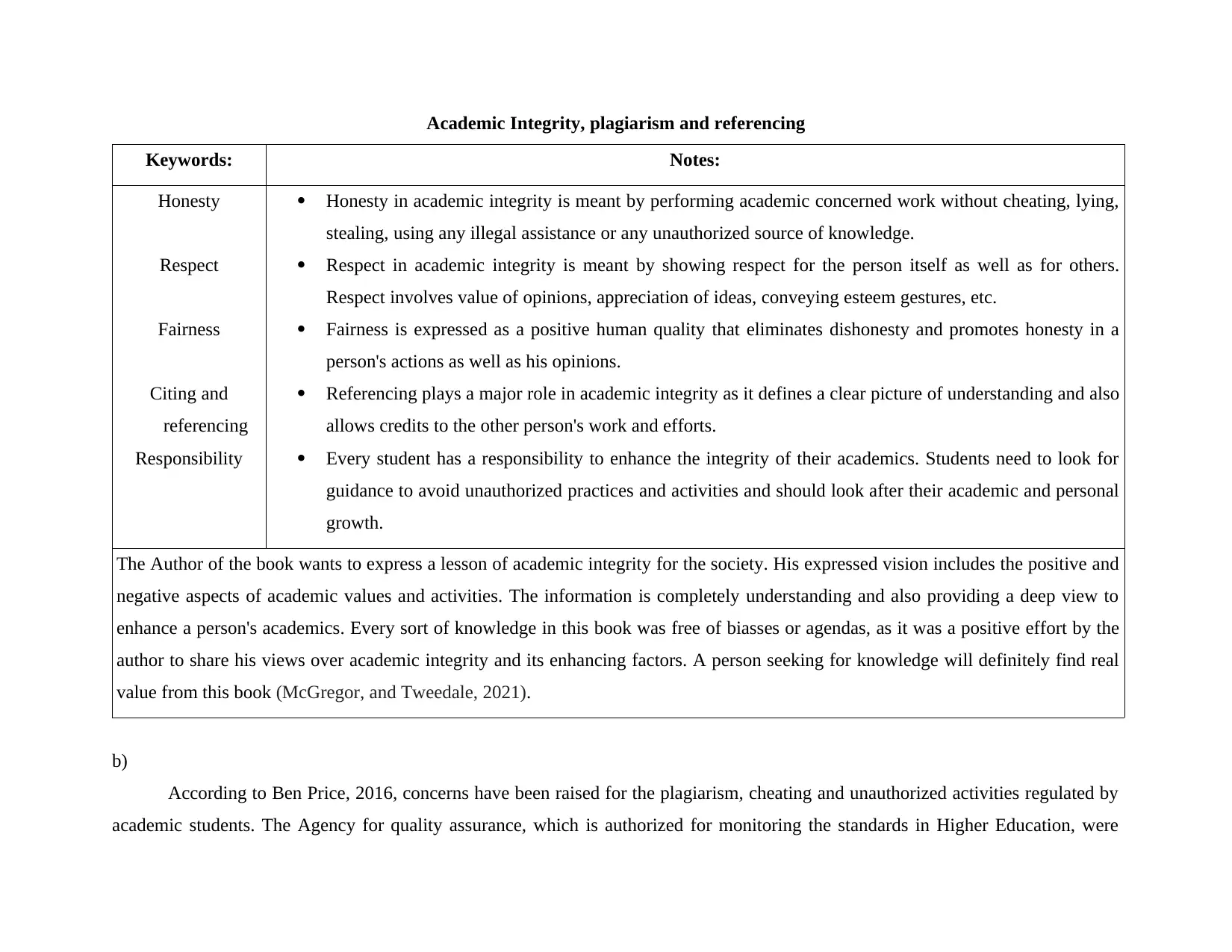
Academic Integrity, plagiarism and referencing
Keywords: Notes:
Honesty
Respect
Fairness
Citing and
referencing
Responsibility
Honesty in academic integrity is meant by performing academic concerned work without cheating, lying,
stealing, using any illegal assistance or any unauthorized source of knowledge.
Respect in academic integrity is meant by showing respect for the person itself as well as for others.
Respect involves value of opinions, appreciation of ideas, conveying esteem gestures, etc.
Fairness is expressed as a positive human quality that eliminates dishonesty and promotes honesty in a
person's actions as well as his opinions.
Referencing plays a major role in academic integrity as it defines a clear picture of understanding and also
allows credits to the other person's work and efforts.
Every student has a responsibility to enhance the integrity of their academics. Students need to look for
guidance to avoid unauthorized practices and activities and should look after their academic and personal
growth.
The Author of the book wants to express a lesson of academic integrity for the society. His expressed vision includes the positive and
negative aspects of academic values and activities. The information is completely understanding and also providing a deep view to
enhance a person's academics. Every sort of knowledge in this book was free of biasses or agendas, as it was a positive effort by the
author to share his views over academic integrity and its enhancing factors. A person seeking for knowledge will definitely find real
value from this book (McGregor, and Tweedale, 2021).
b)
According to Ben Price, 2016, concerns have been raised for the plagiarism, cheating and unauthorized activities regulated by
academic students. The Agency for quality assurance, which is authorized for monitoring the standards in Higher Education, were
Keywords: Notes:
Honesty
Respect
Fairness
Citing and
referencing
Responsibility
Honesty in academic integrity is meant by performing academic concerned work without cheating, lying,
stealing, using any illegal assistance or any unauthorized source of knowledge.
Respect in academic integrity is meant by showing respect for the person itself as well as for others.
Respect involves value of opinions, appreciation of ideas, conveying esteem gestures, etc.
Fairness is expressed as a positive human quality that eliminates dishonesty and promotes honesty in a
person's actions as well as his opinions.
Referencing plays a major role in academic integrity as it defines a clear picture of understanding and also
allows credits to the other person's work and efforts.
Every student has a responsibility to enhance the integrity of their academics. Students need to look for
guidance to avoid unauthorized practices and activities and should look after their academic and personal
growth.
The Author of the book wants to express a lesson of academic integrity for the society. His expressed vision includes the positive and
negative aspects of academic values and activities. The information is completely understanding and also providing a deep view to
enhance a person's academics. Every sort of knowledge in this book was free of biasses or agendas, as it was a positive effort by the
author to share his views over academic integrity and its enhancing factors. A person seeking for knowledge will definitely find real
value from this book (McGregor, and Tweedale, 2021).
b)
According to Ben Price, 2016, concerns have been raised for the plagiarism, cheating and unauthorized activities regulated by
academic students. The Agency for quality assurance, which is authorized for monitoring the standards in Higher Education, were
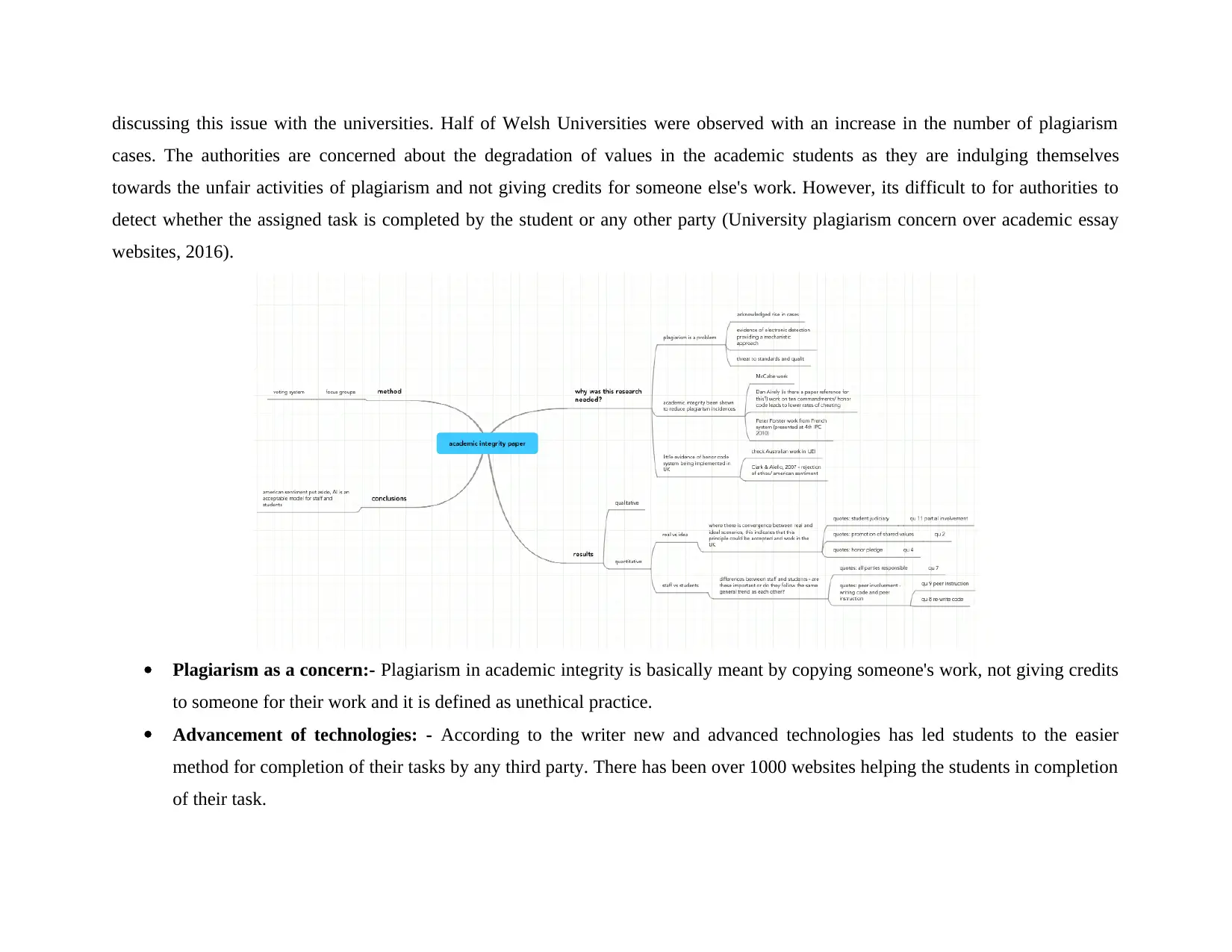
discussing this issue with the universities. Half of Welsh Universities were observed with an increase in the number of plagiarism
cases. The authorities are concerned about the degradation of values in the academic students as they are indulging themselves
towards the unfair activities of plagiarism and not giving credits for someone else's work. However, its difficult to for authorities to
detect whether the assigned task is completed by the student or any other party (University plagiarism concern over academic essay
websites, 2016).
Plagiarism as a concern:- Plagiarism in academic integrity is basically meant by copying someone's work, not giving credits
to someone for their work and it is defined as unethical practice.
Advancement of technologies: - According to the writer new and advanced technologies has led students to the easier
method for completion of their tasks by any third party. There has been over 1000 websites helping the students in completion
of their task.
cases. The authorities are concerned about the degradation of values in the academic students as they are indulging themselves
towards the unfair activities of plagiarism and not giving credits for someone else's work. However, its difficult to for authorities to
detect whether the assigned task is completed by the student or any other party (University plagiarism concern over academic essay
websites, 2016).
Plagiarism as a concern:- Plagiarism in academic integrity is basically meant by copying someone's work, not giving credits
to someone for their work and it is defined as unethical practice.
Advancement of technologies: - According to the writer new and advanced technologies has led students to the easier
method for completion of their tasks by any third party. There has been over 1000 websites helping the students in completion
of their task.
⊘ This is a preview!⊘
Do you want full access?
Subscribe today to unlock all pages.

Trusted by 1+ million students worldwide
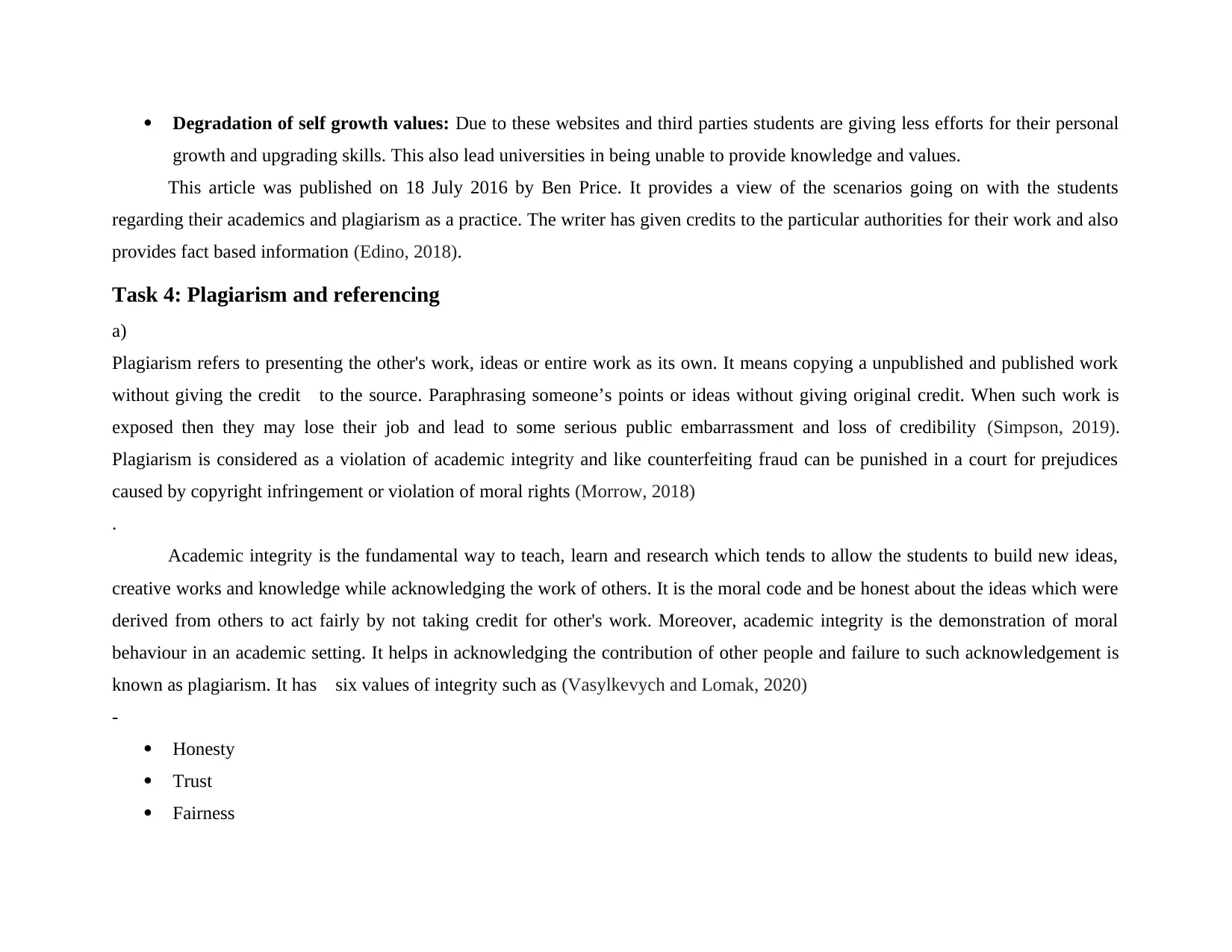
Degradation of self growth values: Due to these websites and third parties students are giving less efforts for their personal
growth and upgrading skills. This also lead universities in being unable to provide knowledge and values.
This article was published on 18 July 2016 by Ben Price. It provides a view of the scenarios going on with the students
regarding their academics and plagiarism as a practice. The writer has given credits to the particular authorities for their work and also
provides fact based information (Edino, 2018).
Task 4: Plagiarism and referencing
a)
Plagiarism refers to presenting the other's work, ideas or entire work as its own. It means copying a unpublished and published work
without giving the credit to the source. Paraphrasing someone’s points or ideas without giving original credit. When such work is
exposed then they may lose their job and lead to some serious public embarrassment and loss of credibility (Simpson, 2019).
Plagiarism is considered as a violation of academic integrity and like counterfeiting fraud can be punished in a court for prejudices
caused by copyright infringement or violation of moral rights (Morrow, 2018)
.
Academic integrity is the fundamental way to teach, learn and research which tends to allow the students to build new ideas,
creative works and knowledge while acknowledging the work of others. It is the moral code and be honest about the ideas which were
derived from others to act fairly by not taking credit for other's work. Moreover, academic integrity is the demonstration of moral
behaviour in an academic setting. It helps in acknowledging the contribution of other people and failure to such acknowledgement is
known as plagiarism. It has six values of integrity such as (Vasylkevych and Lomak, 2020)
-
Honesty
Trust
Fairness
growth and upgrading skills. This also lead universities in being unable to provide knowledge and values.
This article was published on 18 July 2016 by Ben Price. It provides a view of the scenarios going on with the students
regarding their academics and plagiarism as a practice. The writer has given credits to the particular authorities for their work and also
provides fact based information (Edino, 2018).
Task 4: Plagiarism and referencing
a)
Plagiarism refers to presenting the other's work, ideas or entire work as its own. It means copying a unpublished and published work
without giving the credit to the source. Paraphrasing someone’s points or ideas without giving original credit. When such work is
exposed then they may lose their job and lead to some serious public embarrassment and loss of credibility (Simpson, 2019).
Plagiarism is considered as a violation of academic integrity and like counterfeiting fraud can be punished in a court for prejudices
caused by copyright infringement or violation of moral rights (Morrow, 2018)
.
Academic integrity is the fundamental way to teach, learn and research which tends to allow the students to build new ideas,
creative works and knowledge while acknowledging the work of others. It is the moral code and be honest about the ideas which were
derived from others to act fairly by not taking credit for other's work. Moreover, academic integrity is the demonstration of moral
behaviour in an academic setting. It helps in acknowledging the contribution of other people and failure to such acknowledgement is
known as plagiarism. It has six values of integrity such as (Vasylkevych and Lomak, 2020)
-
Honesty
Trust
Fairness
Paraphrase This Document
Need a fresh take? Get an instant paraphrase of this document with our AI Paraphraser
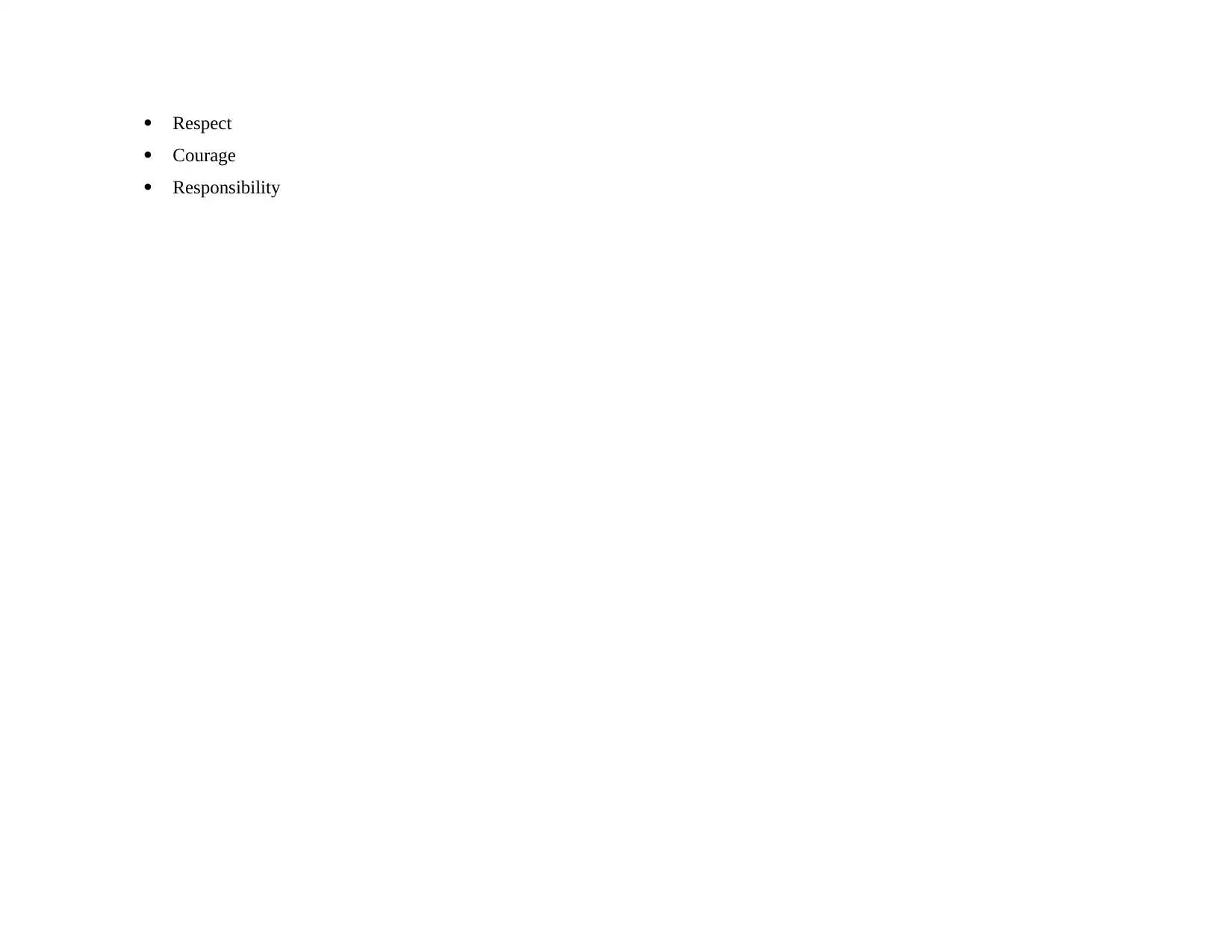
Respect
Courage
Responsibility
Courage
Responsibility
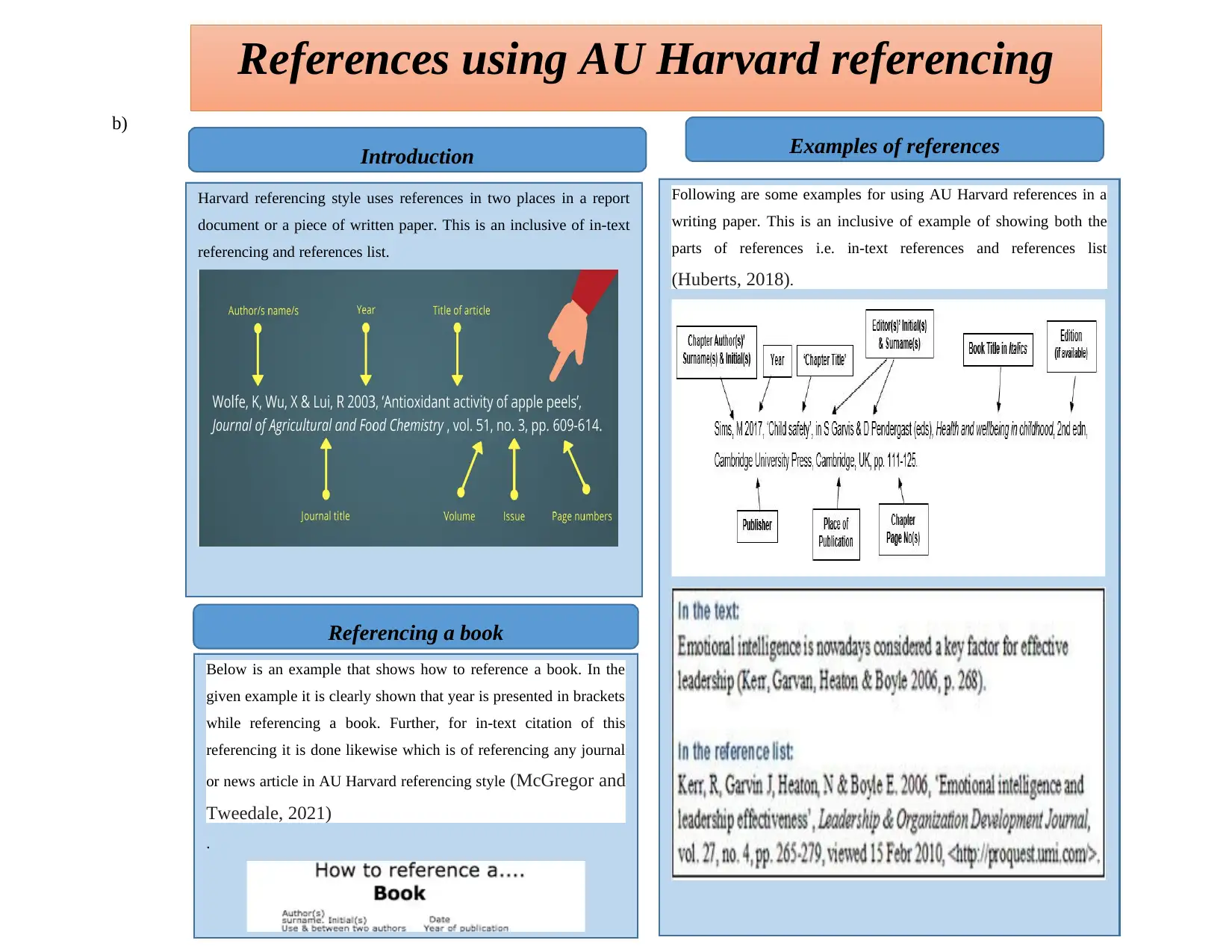
b)
Harvard referencing style uses references in two places in a report
document or a piece of written paper. This is an inclusive of in-text
referencing and references list.
Following are some examples for using AU Harvard references in a
writing paper. This is an inclusive of example of showing both the
parts of references i.e. in-text references and references list
(Huberts, 2018).
References using AU Harvard referencing
Introduction
Referencing a book
Below is an example that shows how to reference a book. In the
given example it is clearly shown that year is presented in brackets
while referencing a book. Further, for in-text citation of this
referencing it is done likewise which is of referencing any journal
or news article in AU Harvard referencing style (McGregor and
Tweedale, 2021)
.
Examples of references
Harvard referencing style uses references in two places in a report
document or a piece of written paper. This is an inclusive of in-text
referencing and references list.
Following are some examples for using AU Harvard references in a
writing paper. This is an inclusive of example of showing both the
parts of references i.e. in-text references and references list
(Huberts, 2018).
References using AU Harvard referencing
Introduction
Referencing a book
Below is an example that shows how to reference a book. In the
given example it is clearly shown that year is presented in brackets
while referencing a book. Further, for in-text citation of this
referencing it is done likewise which is of referencing any journal
or news article in AU Harvard referencing style (McGregor and
Tweedale, 2021)
.
Examples of references
⊘ This is a preview!⊘
Do you want full access?
Subscribe today to unlock all pages.

Trusted by 1+ million students worldwide
1 out of 14
Your All-in-One AI-Powered Toolkit for Academic Success.
+13062052269
info@desklib.com
Available 24*7 on WhatsApp / Email
![[object Object]](/_next/static/media/star-bottom.7253800d.svg)
Unlock your academic potential
Copyright © 2020–2026 A2Z Services. All Rights Reserved. Developed and managed by ZUCOL.